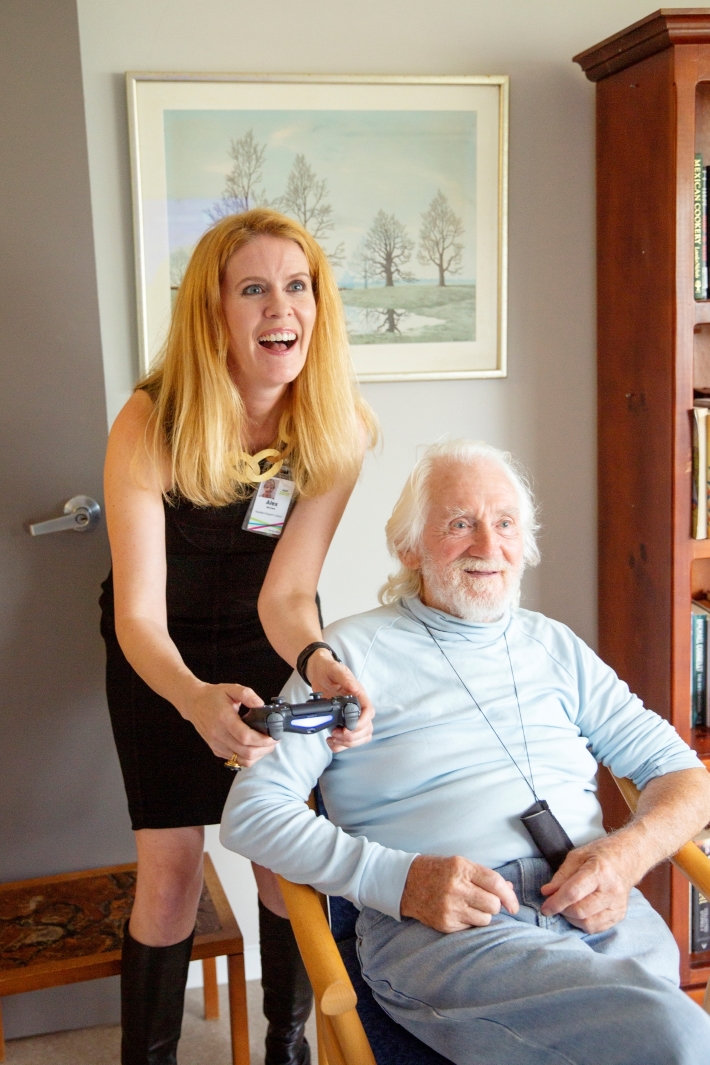University of New England (UNE) psychology and behavioural science researcher Alex McCord is offering gaming to elderly residents in the three Feros Care residential villages in which she works. As well as potentially boosting their cognitive function, gaming can help alleviate loneliness and promote engagement.
"Under-16s are not permitted to visit the elderly in nursing homes due to infection control, but they could connect with their grandparents by playing games together online," says Alex, a post-graduate student and psychology intern. "Many residents are finding social distancing difficult, and we're trying to mobilise as many virtual and online resources as possible - whether it's video-chatting with families, virtual exercise groups and museum tours, watching opera or gaming- to help them through."
Even seniors in isolation in private homes can become a part of the action. "Playing video games with someone on a shared server gives the elderly person a reference point; it's something they can then speak to other family members about," Alex says.
As coronavirus imposes ever tighter restrictions on socialising, there's been growing appreciation of the power of technology to unite family members. "Many residential villages like Feros are seeing older people more prepared to adopt email, Skype and other technologies that were less of interest prior to these restrictions," Alex says."If you can't physically connect with someone, there's no reason why you can't enjoy a video chat or online activity together like a game or puzzle."
Alex's support for gaming is founded on her own research, to be published in the July 2020 issue of Computers in Human Behaviour, which found that the cognitive function of residents aged 80 and above significantly improved when they regularly played video games. It helped to boost their working memory, ability to switch tasks and visual attention.
"Research supports the use of cognitive stimulation to maintain neuroplasticity [the brain's ability to change throughout life] in ageing adults and to manage the onset of dementia," Alex said. "It's widely held that neural engagement, physical exercise, new learning and cognitive training, when adopted as part of a healthy ageing lifestyle, can help compensate for brain degeneration.
"If cognitive exercise can help compensate for the decline in these processes, and provide a little fun and connection with family, then seniors have another tool to help maintain their quality of life and independence during these challenging times."
Link to full text of published peer-reviewed journal article:


